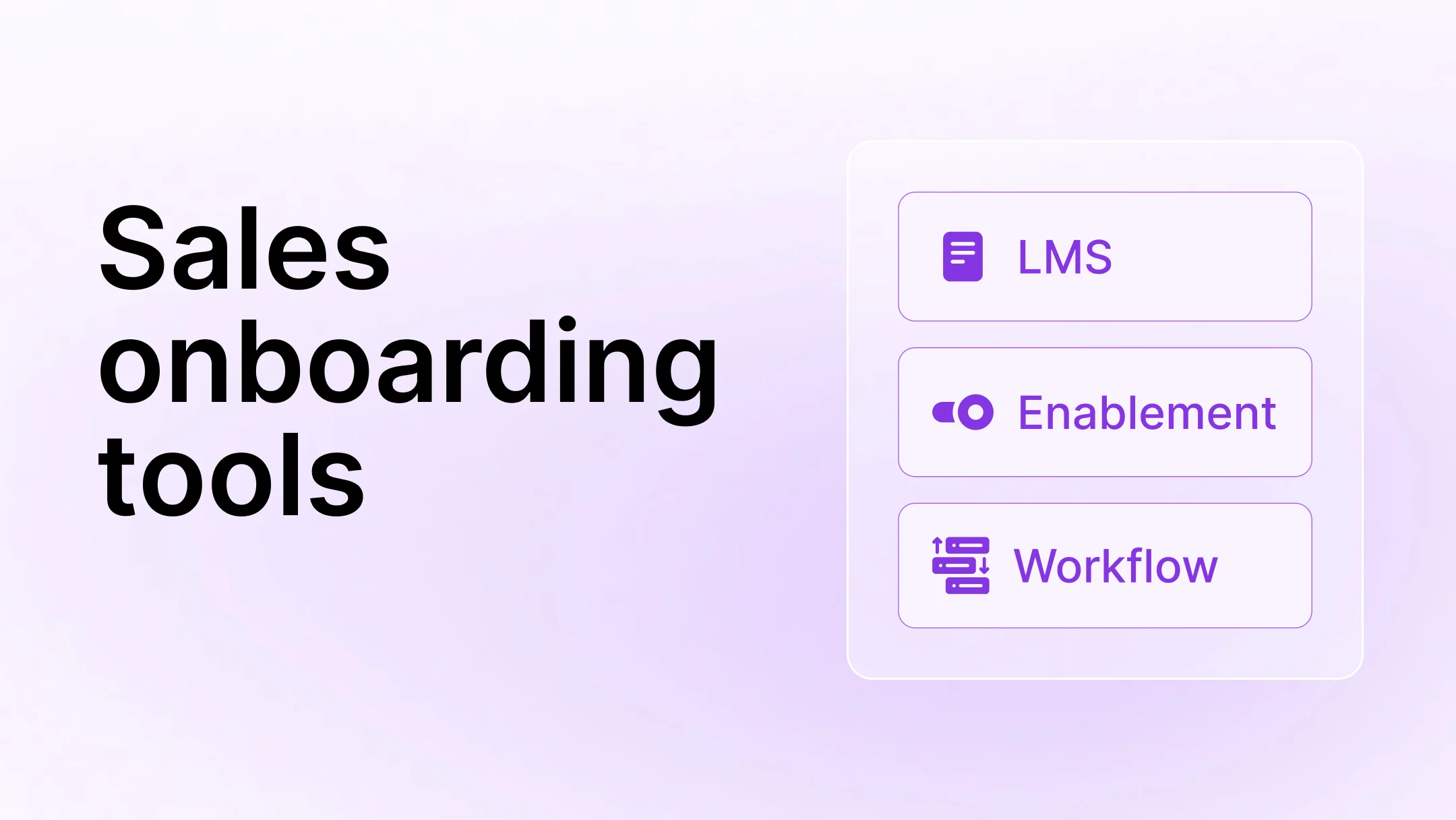HubSpot vs. Freshsales
Table of Contents:
.jpg)
“HubsSot versus…” is going to be a tough challenge for any CRM (customer relationship management) platform. Hubspot is rightly recognized as one of the main market leaders in the CRM space.
But Freshsales is winning a dedicated following and building an impressive reputation as an alternative to HubSpot. And like HubSpot’s, Freshsales’ CRM is just one element in an entire, coherent software ecosystem, which becomes more powerful the more platforms your business adopts.
So Freshsales vs HubSpot promises to be a close-run thing!
In 2022, G2 ranked HubSpot as #2 CRM on the market and Freshsales as #8—with Hubspot in front of both the Market Presence and Satisfaction axes.

Having said that, G2 reviewers consistently rated Freshsales more highly than HubSpot on every single major measure:

In some cases, those differences were not insignificant:
- Ease of Use: Freshsales 9.1 vs HubSpot 8.7
- Ease of Admin: Freshsales 9 vs HubSpot 8.6
- Product Direction: Freshsales 9.4 vs HubSpot 8.5
However, the numbers of reviews for HubSpot were much higher (nearly 7,000) compared to Freshsales (around 850).
Our research approach to arriving at an objective comparison
Before we start, here are a few notes on how we’ve gone about comparing HubSpot vs Freshsales.
We at Avoma are a SaaS organization ourselves and strongly believe in being useful and helpful to the SaaS community with our Modern SaaS initiative. In fact, we’ve gone through the CRM evaluation phase multiple times for our organization.
This blog post aims to share our learnings and observations from our evaluation journey and bring in the points of view of other evaluators and customers — past and present of both these CRM platforms.
Here’s the 7-step process on how we arrive at our comparative information in an unbiased manner:
- Schedule a demo with both the CRMs (we had seriously evaluated between them to arrive at the CRM we use internally)
- Trial the free version of the software to get a feel of the platform
- Refer to the notes on why we decided to go through or not-go-through with the platform
- Reach out to at least 15 existing and past users of both platform’s users to understand their first-hand experience
- Interview the current and past users to understand the nitty-gritty of the features that are a must-have, good-to-have, and what’s missing
- Aggregate a minimum of 100 reviews across G2, GetApp, TrustRadius, FinancesOnline, and all relevant SaaS review sites to understand the customer sentiment at scale
- Run polls on social media
The key difference between Freshsales and HubSpot
Freshworks and HubSpot have taken similar approaches to their CRM offerings. CRM is just one of the many areas they have incorporated into their all-in-one software suites. They have expanded outwards—Freshworks from customer service tools and HubSpot from marketing automation.
That means both platforms can complement the core functionality with extras drawn from elsewhere and that both companies have a wider view of the role and potential of CRM than other competitors with a narrower emphasis. Take the HubSpot vs Pipedrive comparison, for instance—the former feels like a full course meal while the latter is like a Granola protein bar.
Freshsales

Freshworks' wide product range could cater to most businesses' entire range of operations, but each product stands alone—there is far less overlap than is seen with HubSpot. But Freshsales' pricing makes it hard to ignore. 👌
HubSpot

HubSpot Sales Hub is closely integrated into the wider HubSpot ecosystem, meaning that every additional service you add feels like a logical progression from what you already have. 👌
Choosing between Freshsales and HubSpot
Our comparison of Freshsales and HubSpot is going to look at five key areas that will make it clear who each one is best suited to and which use cases each excels in.
Key factors for evaluation
1. Ease of use
If a CRM is hard to use or unintuitive, people won’t use it. So ease of use and adoption are critical factors to consider.
Questions to ask:
- How hard or easy is it to set up and implement Freshsales and HubSpot?
- Do you need a dedicated manager to administer the platform?
- Can you trial the platform yourself and get to grips with it via self-serve onboarding?
- Will users need dedicated training to start using the tool effectively?
2. Product capabilities
The next front in our Freshsales vs HubSpot showdown is the CRM’s feature set. What can it do? And what can’t it do?
Questions to ask:
- How comprehensive is the CRM in terms of its features?
- What integrations does Freshsales support? And HubSpot?
- Do they support integrations natively or via third-party API connectors?
- Are its functionalities out-of-the-box or customizable?
3. Pricing
There are free CRM SaaS products and there are very expensive ones. HubSpot and Freshsales both have free packages and pricey ones. The one that is right for your business will depend on your team size, budget, and the revenue goals the CRM is aimed at helping you achieve.
Questions to ask:
- Does the CRM offer a free trial or freemium subscription model?
- Is the pricing affordable, flexible, and fair for your business use cases?
- Does it have flexible monthly billing options, or does it force you to sign an annual contract?
- Does the platform charge for collaboration?
- Does the platform offer different pricing for different types of users?
- Are there any hidden costs?
4. Scalability
You shouldn’t be deciding on a CRM system simply based on what you need today. Your choice needs to take into account where your business will be in the future as well.
Questions to ask:
- How easy and affordable is it to add more users to the platform?
- Does it offer enterprise-level features?
- Is it a specialized CRM software or does it offer a wider range of capabilities?
5. Integrations and App Ecosystems
As an extension to scalability, while buying into a CRM, it’s important to understand the tech ecosystem supported by it.
Questions to ask:
- How rich are its integration offerings?
- Does it offer one-way or two-way integration with the tools you want to connect to your CRM?
- Which of these are native integrations, and which of them need a connector (example: Zapier)?
Comparing Freshsales vs HubSpot
The TL;DR Version

1. Ease of use
Freshsales—Very easy to onboard, good customer service
Ease of use is what drew us initially to Freshsales. When we saw how easy it was to set up and use, we knew it would be a great fit for our company.
- Jylian Russell, Chief Marketing Advisor, Botpress
Jylian isn’t alone in that assessment. As the G2 review chart showed earlier, ease of use and ease of admin were two of the areas where Freshsales outscored HubSpot by a reasonable margin.
It certainly is intuitive to use and well-designed so that all the functionality can be located quickly. The interface is clean and—for a product with so many different features—uncluttered. There is an excellent knowledge base, which includes video tutorials to help you get started.
And best of all, Freshsales provides phone, email, and chat support 24 hours, Monday to Friday—even to free users. That means troubleshooting should never be a serious problem, and the learning curve is considerably flattened.
HubSpot—Designed for simplicity, but support is mostly self-serve
HubSpot’s CTO has said that ease of use is 'the number one thing we are solving for.'
And the product bears that out.
It’s very easy to get to grips with, and even you’re using elements from different Hubs. That’s a testament to the design philosophy that has underpinned HubSpot’s expansion—even as the offering has diversified, useability has not been neglected.
To make the most of HubSpot, it is probably wise to have an in-house expert available, but that doesn’t mean that an untrained admin can’t handle most of what the majority of businesses will need.
One slight problem with HubSpot’s customer support, however, is that one-on-one help is seriously restricted:
- Only Professional and Enterprise users can get a support agent on the phone
- Free users don’t even have access to chat and email support
While HubSpot has produced an impressive amount of training material, it’s in the nature of CRM to require highly bespoke solutions on a case-by-case basis. If your use case isn’t covered or you don’t have the experience to find your own path, you could find troubleshooting a struggle.
2. Product capabilities
Freshsales—AI enhancements are the differentiator
In terms of CRM basics, Freshsales and HubSpot both have everything you’d expect:
- Contact, opportunity, deal, task, and calendar management
- Email templates and automation
- Dashboards and pipeline visualization
- Team management features
- Mobile app for use in the field
- Extensive customizability
- Workflow automation
- Smart documents
So let’s focus on where they differ.
For Freshsales—at the higher product tiers—the differences coalesce around the Freddy AI platform, which offers:
- Automatic data enrichment from public sources
- Predictive lead scoring
- Conversational bots for lead generation and answering FAQs
- Data deduplication
- Deal and forecast insights
While many CRM platforms are offering AI tools (HubSpot included—it offers predictive lead scoring and conversation analysis, to extract insights from phone recordings), few are putting it to such focused use. Perhaps that’s why G2 users rate it so highly for product direction?

At the lower end of the product range, Freshsales is particularly strong on integrating telephone operations into the CRM—although phone credits to use the dialer come at an extra cost.
HubSpot—Overall strong, with some isolated standouts
HubSpot had many great and unique features a few years ago, but nowadays, those same features have become a commodity. Competitors offer the same things for half the price.
- Kelly Chan, Marketing Manager, AccountantOnline.ie
Kelly has a point. HubSpot does a lot of things and it does them pretty well. But it comes with a high price tag as we’ll see in the next section. Why doesn’t it offer packages that do less, for less?

It does provide some welcome features that are not common among SaaS CRMs. Meeting booking is one of these. It’s certainly handy to generate a link that will put calendar invites directly into calendars, but it’s hardly an original feature—Calendly does it for free!
Taking payments within the HubSpot platform is—again—a nice-to-have feature, but there are better third-party alternatives available.
It would be going too far to call HubSpot a jack of all trades but master of none, but it would be hard to pick out an area in which the core CRM product (as opposed to the wider ecosystem) blows the competition out of the water.
3. Pricing
Freshsales—Best value for money with Growth and Professional packages
Freshsales has a free-forever version (as does HubSpot), that allows an unlimited number of users to share the same CRM space.
The features it offers are pretty basic essentials: deal, contact, and task tracking and management; lifecycle management; calendars; live chat; and a mobile app.
Only the inclusion of in-app telephone calling and website data capture forms make Freshsales’ free version stand out from the CRM crowd.
It’s a pity that free users don’t get access to the Freshsales app marketplace though. That makes a big dent in its utility at this level.

One of Freshsales’ best points is its pricing structure:
- Each tier is close to or cheaper than the majority of comparable high-quality CRM platforms
- There is total flexibility on user numbers (a minimum of one) and the option to pay monthly for a relatively small premium
- The inclusion of a 21-day free trial of the paid features is a great help for anyone unsure about whether to upgrade
At the Growth tier, Freshsales introduces:
- Email automation and sales sequences
- File storage
- A host of call management tools
- Lots of extra tools for live chat
- Predictive lead scoring using AI
- Improved reporting
Professional beefs up the AI enhancements, with out-of-office detection, bot question answering, deal insights, smart chat assignment, and automatic deduplication—along with higher usage limits and more phone-based tools.
That much AI for $39 per user per month is pretty unusual, and it makes Professional Freshsales a really powerful package.
The main addition when you move up to Enterprise is the inclusion of an account manager. Except for a few extra features and higher usage limits, that extra $30 per user doesn’t add a great deal.
HubSpot—Great value at the bottom end, less so at the top
HubSpot’s free package beats Freshsales’ hands down. On top of the basic CRM and chat integrations, Hubspot lavishes free users with tools from its Marketing and Customer Service Hubs, including:
- Landing page design and build
- Customer support ticketing
- Website visitor insights saved directly to the CRM
- Customizable quoting
- Access to the HubSpot app marketplace
The only things that free Freshsales has that HubSpot doesn’t are:
- In-app phone calling (and that requires you to buy credits so it’s not completely free…)
- No direct support for free users - they have to manage with the help documents only

But on the paid tiers, HubSpot is more expensive at every step:
- Starter begins at $45 per month for two users minimum, with extras users costing $23 per month
- Professional begins at $450 per month for five users and costs $90 per user per month thereafter
- Enterprise begins as $1200 per month for ten users, plus $120 per extra user
The minimum user number is irritating. By raising the entry price, HubSpot has made its more powerful functionality inaccessible to smaller businesses with a low headcount. Freshsales, by contrast, lets you start with a minimum of just one user at every level.
Having said that, some of HubSpot’s best features (e.g. meeting scheduling, basic quotes, taking payments, 500 minutes of call time per user) are provided at the Starter level, which is quite competitively priced.
The main additions as you move through the packages are:
- Professional – A greater number of automations, with more complex workflows; automated LinkedIn messaging; lead scoring; advanced reporting; list deduplication
- Enterprise—Predictive lead scoring, conversation intelligence (analyzing call recordings for insights), quote-based workflows, and field-level permissions
Is that enough to justify the heavy price tag? You decide.
4. Scalability
Freshsales—Highly scalable and an affordable Enterprise product
Scalability is an area where both Freshsales and HubSpot are very strong, because of the sheer breadth of the product offerings their respective CRM platforms are a part of.
Freshsales integrates directly with Freshdesk (customer support), Freshteam (digital HR experience), Freshmarketer (marketing automation), and Freshservice (IT management).

FreshWorks also offers two separate free tools: Freshping (for website monitoring) and Freshstatus (for incident management).
All those extra platforms make it efficient from an onboarding and maintenance point of view to pass over more and more of your business software requirements to FreshWorks’ capable hands.
At the Enterprise level, a lot of the usage restrictions Freshsales users see are lifted—but there are not very many exciting extra features. But at $69 per user per month, this has to be one of the cheapest, genuinely “Enterprise” options available.
HubSpot—A complete set of Go To Market tools for all business stages
The Sales Hub is just one of five different sets of paid-for tools HubSpot has to offer. The others are:
- Marketing Hub
- Customer Service Hub
- CMS Hub
- Operations Hub

These are all focused on Go To Market (GTM) operations, which makes the full set a lot more coherent and each element more complementary to one another than FreshWorks’ complete range. So FreshWorks covers more breadth but by concentrating on a narrower area, HubSpot has been able to go deeper.
When it comes to APIs, HubSpot has one for each Hub. And its own app marketplace is considerably larger than Freshsales’. Freshsales contains around 80, including integrations with other FreshWorks products. Hubspot, by contrast, has more than 350 free apps—let alone paid-for ones.
When you opt for the Enterprise package, a lot of extra features are added that will work for big businesses (e.g. hierarchical teams, custom objects, playbook uploads). While pure CRM functionality doesn’t increase much at this level in either product, HubSpot seems better designed for large organizations.
5. Integrations and App Ecosystems
Freshsales—Everything you need, but limited in variety
Freshsales also makes it easy to integrate the CRM with third-party applications, to transfer data both in and out.
There is an app marketplace with off-the-peg integrations that anyone can use, along with a well-documented API and webhooks.

The marketplace is a good feature—although it’s a shame it’s not available to free users and there are a lot of obvious integrations missing. For example, there’s one for Asana, but nothing for comparable project management platforms like Monday or Airtable.
There is a Zapier app, however, which can operate as a connector between Freshsales and those apps it doesn’t have a direct integration for.
Good idea to provide a HubSpot app though! That’s one way to get the best of both worlds.
HubSpot—More apps, more APIs, more options
When it comes to APIs, HubSpot has one for each Hub. And its own app marketplace is considerably larger than Freshsales’ (which, as we mentioned earlier, contains around 80 integrations). HubSpot, by contrast, has more than 350 free apps. In total, it has more than a thousand.

Not only that, it has no less than 34 different connector apps, including Zapier, Blendr.io, Integrately, Tray.io, and many more. Anything you can’t find, it’s simple to create—even if you’re not a developer.

HubSpot’s new Operations Hub is particularly powerful in this respect. It includes over a hundred apps that can sync data back and forth between systems, align custom field mappings, and filter data.
With SaaS becoming a bigger and bigger part of businesses’ DNA, the need to tie apps together into one coherent stack is becoming ever-more compelling. Freshsales gets some of the way, but HubSpot has a pretty huge head start.
Final verdict
Freshsales vs HubSpot is a really tough contest to call because each outperforms the other on different criteria.
Freshsales is less expensive and more flexible in terms of contractuals and—by all accounts—customers find it easier to use. The AI-focused direction of travel suggests that Freshsales may well have found a niche that leads to a future iteration of the product becoming a real game-changer.
On the other hand, HubSpot is unquestionably a market leader right now. That’s down to the breadth of its offering and the ease with which customers can expand from one Hub to another. This makes HubSpot very sticky—once it’s in your company’s DNA, it’s very hard to change providers. It wins on scalability, thanks to its superior Enterprise product. And it wins on integrations and app ecosystem, which is more than ten times broader than Freshsales’.
So, our recommendations would be:
- For smaller businesses that need powerful CRM functionality; for businesses that expect one-on-one customer support; and for businesses that see AI playing a big part in their futures, choose Freshsales.
- For larger and scaling companies, particularly Enterprises; for businesses that want all their GTM tools under one umbrella; and for businesses that want access to an entire universe of ready-made integrations, choose HubSpot.
Frequently Asked Questions






What's stopping you from turning every conversation into actionable insights?










